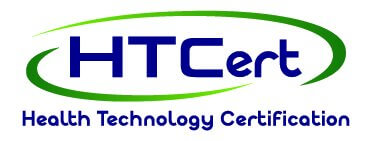ISO 9001 Certification
Organizations that implement an effective management system create trust between stakeholders in the ability of their processes and the reliability of their products and / or services. In addition, an effective means to increased customer satisfaction and ultimately to the organization success.
ISO 9001 is the International Standard for Quality Management Systems. It is based on a set of principles that are consistent with good business practice. These include focusing on customers, involving all the people that affect your business, doing things systematically and constantly looking for ways to improve.
All the requirements of ISO 9001:2015 are generic and are intended to be applicable to any organization, regardless of its type or size, or the products and services it provides. It can be applied in public and private sector, government institutions and private companies from small to very large companies.
The standard covers all aspects of an organisation’s activities, including identifying its key processes, defining roles and responsibilities, policies and objectives, documentation requirements, the importance of understanding and meeting customer requirements, communication, resource requirements, training, product and process planning, design processes, purchasing, production and service, monitoring and measurement of products and processes, customer satisfaction, internal audit, management review, and improvement processes.
The implementation of ISO 9001 system sets the basis for a continuous improvement environment in the business. In particular, with its proper implementation, organizations can derive benefits such as:
- Greater competitiveness
- Improved productivity / efficiency
- Reduced costs
- Improved quality of services / products
- Enhanced reputation / Access to new markets / Satisfied Customers
ISO 13485 certification
ISO 13485 “Medical Devices – Quality management systems – Requirements for regulatory purposes” is the international standard that defines quality management system (QMS) requirements for manufacturers of medical devices.
This international standard provides the basis for medical device regulations to be harmonized around the world. The standard sets out the requirements for a quality management system specific to the medical devices industry. It is designed to be used by organizations throughout the life cycle of a medical device, from initial conception to production and post-production, including final decommission and disposal. ISO 13485 is also applicable to organizations that interact with the medical devices manufacturer, including those involved in:
- repair and maintenance of medical devices,
- supply of raw materials, components or subassemblies,
- performance of services such as contract manufacture, sterilization, logistics or calibration of measurement equipment
- import or distribution of medical devices
ISO 13485 helps an organization design a quality management system that establishes and maintains the effectiveness of its processes. It reflects a strong commitment to continual improvement and gives customers confidence in its ability to bring safe and effective products to market.
In the medical devices industry, a quality management system (QMS) is required by regulators in most countries. ISO 13485 enables an organization to consistently provide safe and effective medical devices and fulfil customer and regulatory requirements. It is also flexible enough to meet the individual needs of different types of medical devices organizations.
ISO 13485 does not set detailed requirements but asks a medical devices organization to identify those regulatory requirements that are relevant to its individual situation and incorporate them into its QMS. ISO 13485 can help organizations involved in any part of a medical device’s life cycle:
- Demonstrate compliance with regulatory and legal requirements
- Ensure the establishment of QMS practices that consistently yield safe and effective medical devices
- Manage risk effectively
- Improve processes and efficiencies as necessary
- Gain a competitive advantage
While ISO 13485 is a stand-alone standard, it is similar in scope and intent to ISO 9001 “Quality management systems”. ISO 13485 focuses less on business performance and more on risk management comparing. It contains additional requirements specific to organizations involved in the life cycle of medical devices, while other elements of ISO 9001 that are not relevant as regulatory requirements are not included.
Although an audit performed under the ISO 13485 may include an examination of a product’s design and development, ISO 13485 is not a product certification standard. The certification based on ISO 13485 is not directly linked to the specification of the manufactured products. ISO 13485 certification indicates that the processes for designing and manufacturing medical devices are appropriate for providing consistent product quality and safety.
Certification process
A step-by-step guide is presented in Process for QMS Certification.
In brief, the procedure is as follows:
- To provide you with its services, HTCert requires a description of the intended certification project.
- A detailed quote, with the estimated costs and the description of the applicable steps will be sent to you.
- The conformity assessment procedure starts with the receipt of the formal application form.
- The first step is the review of your application and the signing of a formal contract.
- The next step is the planning of the audit programme and the appointment of the audit team,
- The initial certification audit for the evaluation of the Quality Management System (QMS) is carried out in 2 stages and is followed by addressing of all non-conformities.
- The results of the assessment steps are then subject to a final review in order to be confirmed and a decision on certification is made.
The conditions, rights and duties, as well as the operating processes for the assessment and certification of Quality Management Systems are presented in General Terms for QMS Certification.
